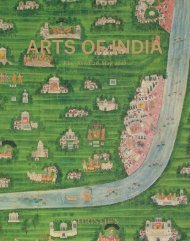1JZGauQ
1JZGauQ
1JZGauQ
You also want an ePaper? Increase the reach of your titles
YUMPU automatically turns print PDFs into web optimized ePapers that Google loves.
AN ARCHAEOLOGY OF THE IRON CURTAIN<br />
on the 1 st of October in the evening. The station was full of soldiers to be, all<br />
saying goodbye to their family and friends. The train took off and stopped<br />
in several places along the way letting soldiers on and off. My destination,<br />
Budejovice, was around 700 km away and we arrived here in the afternoon<br />
of the 2 nd of October. At the station there were buses and military lorries<br />
waiting for us. A short time later we were behind the barrack gates. Our<br />
civil clothes were sent home, our hair was cut, after which we showered and<br />
were given our military clothes and equipment. We were also trying to get<br />
to know the other new soldiers. We were then divided into groups such as<br />
dog handlers, drivers, and cooks or, such as I was, a telephone and radio<br />
operator. In the evening we put our clothes and things into the lockers and<br />
our first night in green was about to commence…” (Jozef, 2010, pers.<br />
comm. 14 th November) (Figure 58).<br />
There were different specialisations of border guard such as gunners, dog<br />
handlers, drivers, radio operators, engineers, surveillance technicians and<br />
cooks. Initial training was given at several training facilities such as in<br />
Jemnice which was the training facility for the border guards in the study<br />
area (Tomas, 2010, pers. comm. 14 th October). Here the future border<br />
guards were trained in physical exercise, shooting and gun handling,<br />
military tactics, special border training, political schooling (communist<br />
propaganda) and particular training required for the different specialisation.<br />
This training lasted around 3 months (Marek, 2010 pers. comm.4 th<br />
November). If you were given more specialised training such as to become a<br />
radio and telecommunication operator the training was usually around 6<br />
months (Jozef 2010, pers. comm. 14 th November 2010).<br />
A border guard had approximately 10 days off per year with an extra one<br />
to three days off in order to travel home depending on the distance. The pay<br />
a border guard received was not much more than pocket money but the<br />
guards that served directly on the border were paid a bit extra. This did not<br />
include people at the border guard station, for example cooks that were not<br />
out by the actual border. Work as a border guard could be hard. The guards<br />
schedule followed the following pattern: two days on duty then one day of<br />
training followed by one day off and then it stated all over again. If,<br />
however, the area was under high alert (due to circumstances such as<br />
political disturbances in the country or an important political visit) there<br />
would not be any days off or time for training at all. A working day was 10<br />
hours and 12 during periods of high alert. Work was not, however, limited<br />
to these hours. Marek who worked as a driver with the 12 th Company, 5 th<br />
Brigade at the Chebská border guard station near the border to GDR<br />
142




